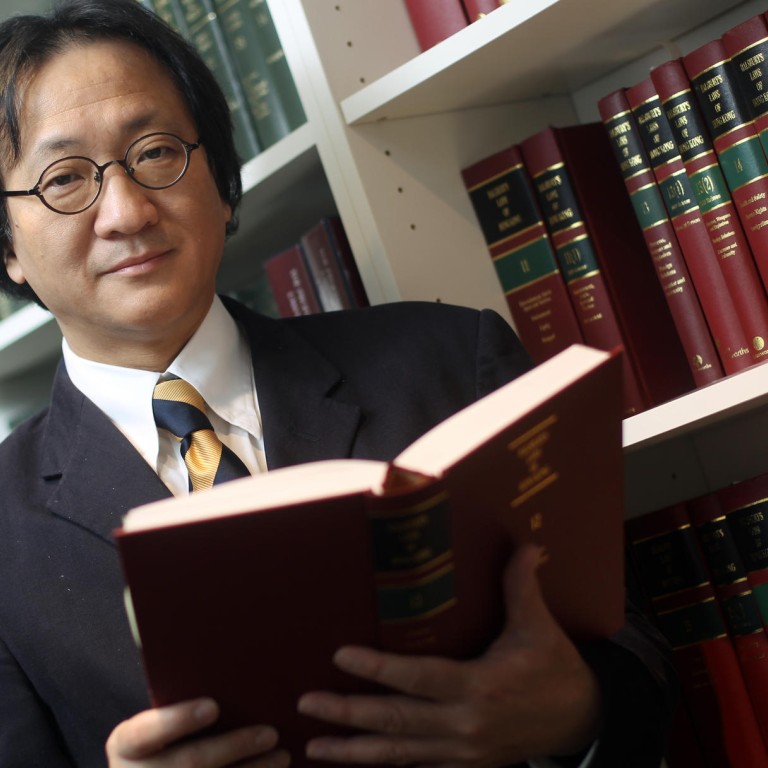
Calls grow for end to child custody clashes
Lawyers say custody fights over children do more harm than good as they press for reform to save time, money and anxiety on all sides
Pressure is mounting for implementation of a reform recommended eight years ago to end custody disputes between divorcing parents.
The Law Reform Commission proposed in 2005 that the term "child custody" in family law be replaced with "parental responsibility", a non-absolute concept that cannot be fought over in the courts and that is designed to save parents time and money by avoiding legal disputes.
In its Legco paper, the government said: "It will take some time to sort out the legislative details and implementation arrangements to ensure consistency among different relevant ordinances."
The potential bitterness in such disputes was illustrated last month, when a mother called the police after she found that her divorced husband had taken their two sons back to their home in Spain. She accused him of breaching a custody order.
Lawyers and counsellors say the existing law is outdated and that Hong Kong has fallen behind the West in not changing it.
Family lawyer Dennis Ho Chi-kuen said that if "custody" was eradicated from the law, parents would have no custodial rights to fight for and costs and time would be saved.
"The issue for them to concentrate on is the future arrangements for the children," Ho said.
Replacing "child custody" with "parental responsibility" would also shift parents' focus from their rights and authority to the rights and interests of their children, in line with global norms such as the UN Convention on the Rights of Children.
In a letter to the government more than a year ago, the Law Society's family law committee said the concept of custody did not encourage divorcing couples to act in the best interests of their children.
"The concept of parental responsibility requires a cultural mindset which can only be achieved by new legislation," it wrote in the letter tabled at last month's Legco meeting.
Parents with custody usually have the misconception that they have full authority over their children and can exclude their ex-spouse from parental care, easily triggering confrontation, Ho said.
Family counsellor Pastor Bob Kraft said he had handled many cases in the past 20 years involving domineering custodial parents. In extreme cases, the custodial parent denied their former spouse access to their children.
Veteran family lawyer Jonathan Mok Chi-ying said it was unusual for parents who breached custody orders to be penalised by the courts.
"The Family Court's authority to make orders on child matters is limited and it is also not the intention to penalise parents, which would serve only to escalate acrimony," he said.
"It is really for the parents to work out their differences, which they should be able to do so in the best interests of their child," Mok said.
In its 2005 report entitled "Child Custody and Access", the Law Reform Commission cited a Scottish act that spelled out that the scope of "parental responsibilities" was to safeguard and promote the child's health, development and best interests; to provide direction and guidance; to maintain personal relations and direct contact with the child regularly, and to act as the child's legal representative.
Mediator Maureen Mueller, writing in the Law Society's last month, admitted it would be "unrealistic" to expect that the change could "perfect the current family law justice system", nor would it be a panacea for all problems.
But Hong Kong could draw on the experience in England, Scotland, Australia and New Zealand, where child custody laws similar to Hong Kong's had been replaced with laws adopting a new joint parental responsibility model.
Kraft warned that children who experienced custody battles at a young age could become very confused and angry and that they could easily develop deviant behaviour.
He agreed that the divorce system in Hong Kong was very old and far behind many jurisdictions in the West.


